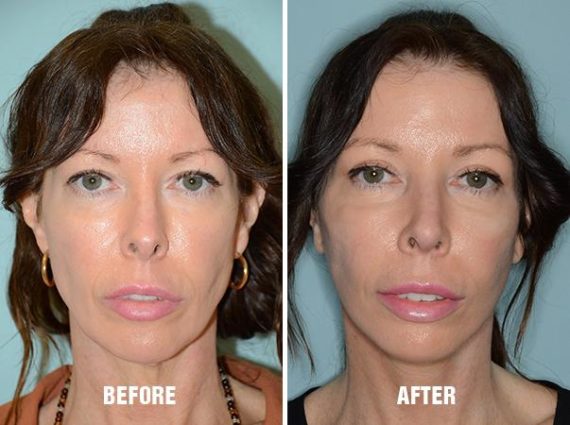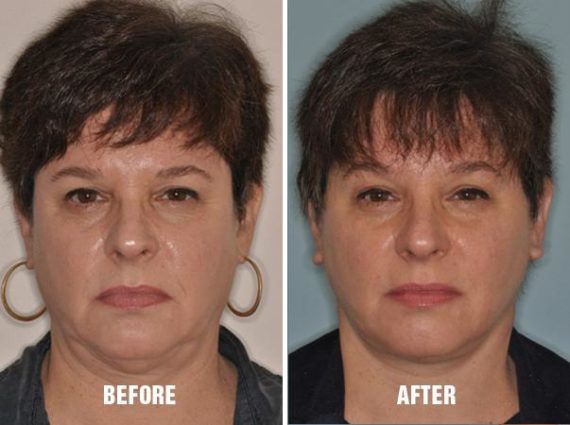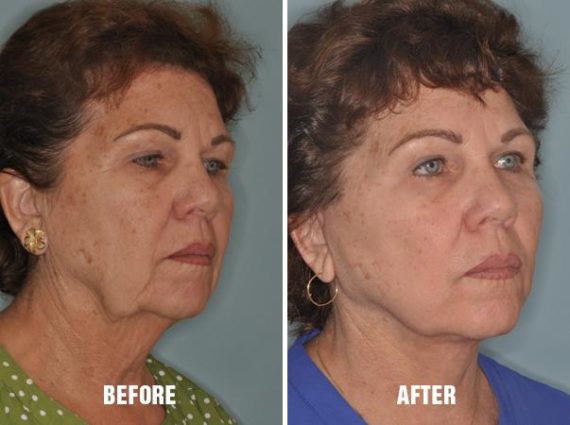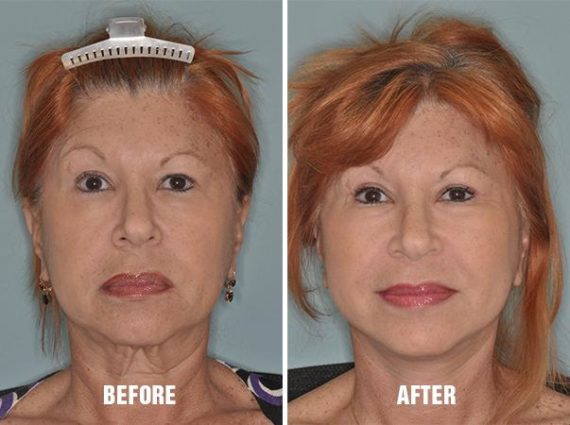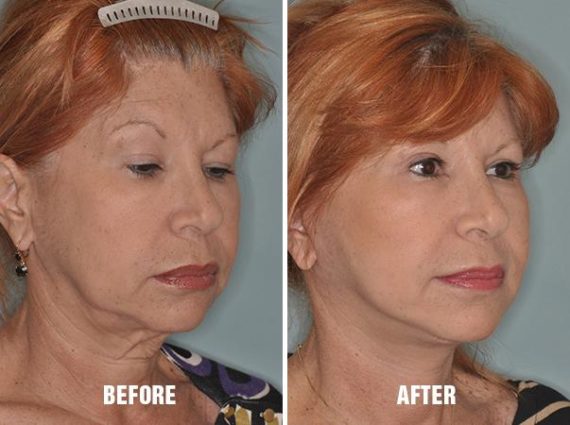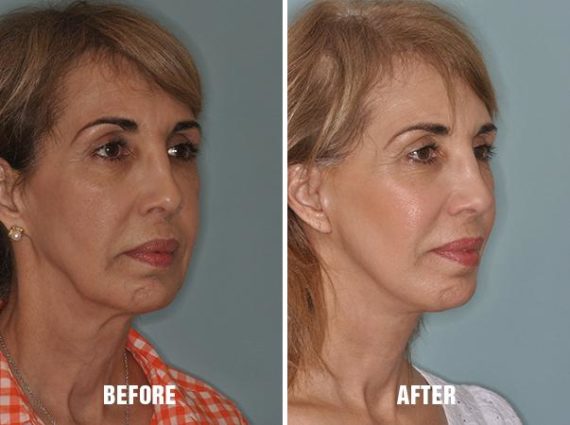One popular way to improve visible signs of aging in the neck and jawline is through a procedure known as neck lift Miami. The recovery process for neck lift surgery plays a crucial role in determining the success of the surgery and the satisfaction of the patient, as with any surgical procedure. In this guide, we will discuss the essential do’s and don’ts of neck lift recovery to ensure a smooth recovery.
Why Choose Dr. Anthony Bared
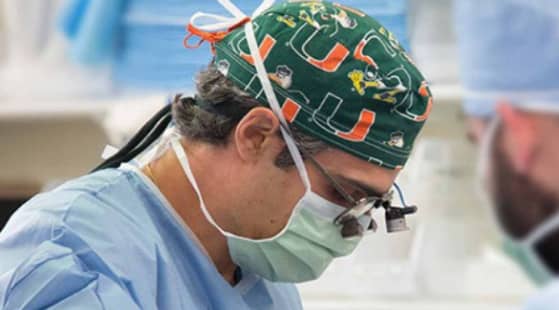
- Dr. Bared’s training was first in Otolaryngology at the University of Miami, followed by the awarding of a highly competitive fellowship by the American Academy of Facial Plastic and Reconstructive Surgery at the University of Illinois-Chicago.
- He is Double Board Certified by the American Board of Facial Plastic and Reconstructive Surgery and the American Board of Otolaryngology.
- Dr. Bared has numerous publications and has lectured at various nationwide scientific meetings.
- He also serves as a clinical voluntary Assistant Professor at the Florida International University, Herbert Wertheim College of Medicine.
- Dr. Bared is a recognized provider of the Foundation Aesthetic Hair Restoration Method. He uses his surgical skills and artistic instincts to offer advanced techniques that ensure natural and transformative results in beard and hair transplants.
What Is the Recovery Time for Neck Lift Surgery?
Depending on the individual and the extent of the procedure, neck lift recovery time can vary. Generally, most patients can expect to return to their normal activities within 2-3 weeks after the cosmetic surgery. However, it is essential to closely follow your surgeon’s aftercare instructions and be patient with the healing process, as the final results may take up to three months to become fully visible.
- First 24 Hours:
- Immediate post-operative care.
- Guidance on managing initial discomfort and swelling.
- First Week:
- Outline of typical healing signs.
- Instructions for wound care and activity limitations.
- Two to Three Weeks:
- Expected improvements in swelling and bruising.
- Gradual resumption of normal activities.
- One Month Post-Surgery:
- Significant reduction in swelling.
- Assessment of healing progress.
- Three Months and Beyond:
- Final results become visible.
- Long-term care and maintenance.
The Do’s of Recovery from Neck Lift Surgery
Follow Post-operative Instructions
Since each patient’s experience and needs are unique, plastic surgeons personalize their post-operative care instructions rather than relying solely on general guidelines. Different techniques may require specific care instructions that are based on the approach used and any modifications made during surgery.
Detailed post-operative instructions will be provided by your surgeon, including care for the surgical site and drains, medications to apply or take orally for healing and infection risk reduction, and follow-up appointments with the plastic surgeon. It is crucial to follow these instructions carefully to ensure a successful neck lift surgery recovery.
Detailed Post-Operative Care Instructions
Post-operative care is crucial for a smooth recovery and optimal results. Here are detailed instructions to follow:
- Wound Care:
- Keep the surgical area clean and dry.
- Follow specific instructions for dressing changes and wound cleaning.
- Medication Management:
- Take prescribed medications as directed to manage pain and prevent infection.
- Be aware of any potential side effects and report them to your surgeon.
- Activity Restrictions:
- Avoid strenuous activities and heavy lifting for a specified period.
- Gradually reintroduce activities as recommended by your surgeon.
- Diet and Hydration:
- Eat a balanced diet rich in vitamins and proteins to aid healing.
- Stay well-hydrated to promote recovery.
- Follow-up Appointments:
- Attend all scheduled post-operative appointments for progress assessment.
- Use these appointments to address any concerns or questions.
Get Plenty of Rest
Rest is an essential part of the healing process. When we sleep, the body enters a state of deep relaxation, which allows for increased blood flow to injured tissues. This enhanced blood flow brings oxygen and nutrients to the affected areas, promoting tissue repair and regeneration. Cellular activities, such as collagen production and cell division, are also heightened during sleep, aiding in the healing process.
Make sure to get enough sleep during the recovery period. Use extra pillows to keep your head elevated above the heart to minimize swelling and avoid excessive twisting or bending of the neck.
Apply Cold Compresses
Cold compresses can help alleviate swelling and reduce discomfort. However, do not apply ice packs directly to the neck skin, as it can compromise blood flow and cause frostbite, which can cause tissue damage or even result in skin death. Instead, use cold compresses as directed by your surgeon.
Stay Hydrated
Make sure to drink plenty of water and other fluids during your recovery period. Sufficient hydration helps maintain proper blood viscosity, allowing for optimal blood flow and circulation to the injured tissues. Improved circulation ensures that essential nutrients and oxygen are effectively transported throughout the body via the bloodstream. These nutrients are necessary for cellular repair, tissue regeneration, and overall healing.
Eat a Healthy Diet
A nutritious diet can help promote healing and provide your body with the necessary nutrients for a successful recovery. Focus on consuming whole foods, lean proteins, fruits, vegetables, and healthy fats.
Manage Pain and Discomfort
Your surgeon may prescribe pain medication to help manage discomfort during the initial stages of recovery. Be sure to take the pain medicine as directed and consult your surgeon if you experience any side effects or if the pain persists.
Attend Follow-up Appointments
Follow-up appointments with your surgeon are essential for monitoring your progress and addressing any concerns or complications that may arise. Be sure to attend all scheduled appointments and communicate openly with your surgeon about your recovery.
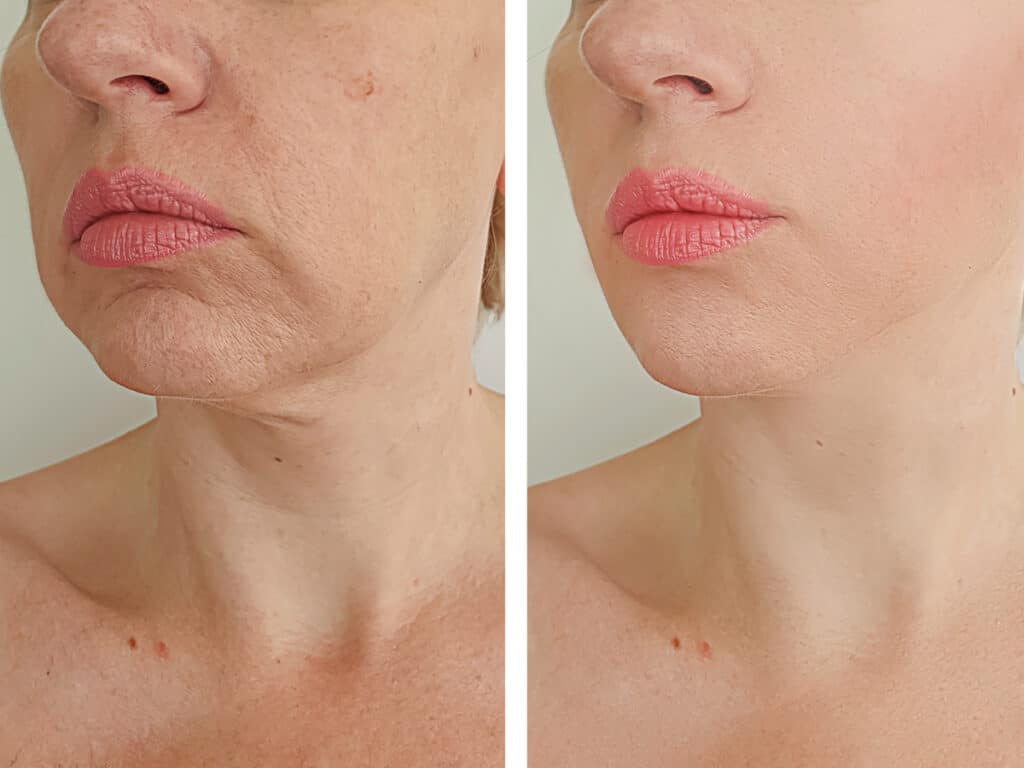

The Don’ts of Recovery from Neck Lift Surgery
Do Not Smoke
Smoking can hinder the healing process and increase the risk of complications because nicotine and other chemicals reduce the amount of oxygen in the blood. Ample oxygen is necessary for healing as it supports cellular metabolism, promotes tissue repair, and helps fight off infections. It is essential to avoid smoking during the Miami neck lift recovery period and, ideally, quit smoking altogether as part of a healthy lifestyle.
Do Not Engage in Strenuous Activities
Besides the risk of re-injury, intense exercise raises blood pressure. This will temporarily increase the workload on the heart and blood vessels, resulting in a constriction of blood vessels or a reduction in blood flow to the neck.
Avoid lifting heavy items and engaging in strenuous physical activities for the first few weeks of neck lift recovery. Your surgeon will let you know when it is safe to resume these activities.
Do Not Expose the Incision Sites to Direct Sunlight
Exposure to direct sunlight can cause hyperpigmentation and slow down the healing process. Keep the incision sites covered and protected from the sun for at least six months after surgery. When going outside, apply broad-spectrum sunscreen with an SPF of 30 or higher to the incision areas.
Do Not Consume Alcohol
Be careful with alcohol because it can increase the risk of complications and interfere with the healing process. It inhibits the formation of new blood vessels, which are necessary for supplying oxygen and nutrients to the healing area and potentially interact with prescribed medications.
Do Not Wear Tight Clothing or Accessories
Wearing tight clothing or accessories around the neck area can cause discomfort and may interfere with the healing process. Opt for loose, comfortable clothing that will make dressing and undressing easy. Avoid turtlenecks or necklaces during this time as well.
Do Not Neglect Your Emotional Well-being
Recovering from neck lift surgery can be an emotional process, as it involves adjusting to physical changes and dealing with temporary discomfort. It is essential to take care of your emotional well-being during this time by seeking support from friends, family, or a mental health professional if needed.
Addressing Emotional Well-being During Recovery
Recovering from a neck lift surgery isn’t just a physical journey; it’s an emotional one too. It’s common to experience a range of emotions, from excitement about your new look to anxiety about the healing process. Here’s how to navigate these feelings:
- Expect Emotional Ups and Downs:
- Understand that it’s normal to feel impatient or anxious as you heal and wait for the final results.
- Seek Support:
- Lean on friends, family, or support groups for emotional comfort and practical help during recovery.
- Stay Informed:
- Knowing what to expect at each stage can alleviate anxiety. Don’t hesitate to ask your surgeon any questions you may have.
- Mindfulness and Relaxation:
- Techniques like deep breathing, meditation, or gentle yoga can help manage stress and promote a positive mindset.
- Monitor Your Mental Health:
- If you’re feeling overwhelmed, consider speaking to a mental health professional for support.
Do Not Skip Medication or Supplements
Your surgeon may prescribe medications or supplements to aid in the healing process and reduce the risk of complications. Be sure to take all prescribed medications and supplements as directed, and consult your surgeon if you have any concerns or questions about their use.
Necklift Before & After Photos
Each patient is unique and individual results may vary*.
Potential Side Effects After Neck Lift Surgery
As with any plastic surgery procedure, there are potential side effects associated with a neck lift procedure. Some common side effects may include swelling, bruising, tightness, numbness, and temporary changes in sensation. These side effects typically resolve on their own within a few weeks. However, if you experience any persistent or severe side effects, be sure to consult your surgeon immediately.
What Are the Best Treatment Options for Sagging Neck?
When it comes to addressing a sagging neck, finding the best treatments for sagging neck is crucial. Options like neck lift surgery, which involves removing excess skin and tightening the underlying tissues, can provide long-lasting results. Non-surgical treatments such as laser therapy or radiofrequency can also be effective in firming and tightening the skin for a more youthful appearance. Consulting with a qualified professional is essential to determine the most suitable treatment option for an individual’s specific needs.
Talk with a Neck Lift Surgeon
If you are considering neck lift surgery Miami, it is essential to consult with a qualified and experienced neck lift surgeon. During the initial consultation, Dr. Anthony Bared, a double board-certified facial plastic surgeon in Miami, will evaluate your individual needs, discuss the procedure in detail, and help you determine if a neck lift is the right choice for you.
By following the do’s and don’ts of neck lift recovery and working closely with your surgeon, you can achieve a successful recovery and enjoy the rejuvenating effects of a neck lift.





